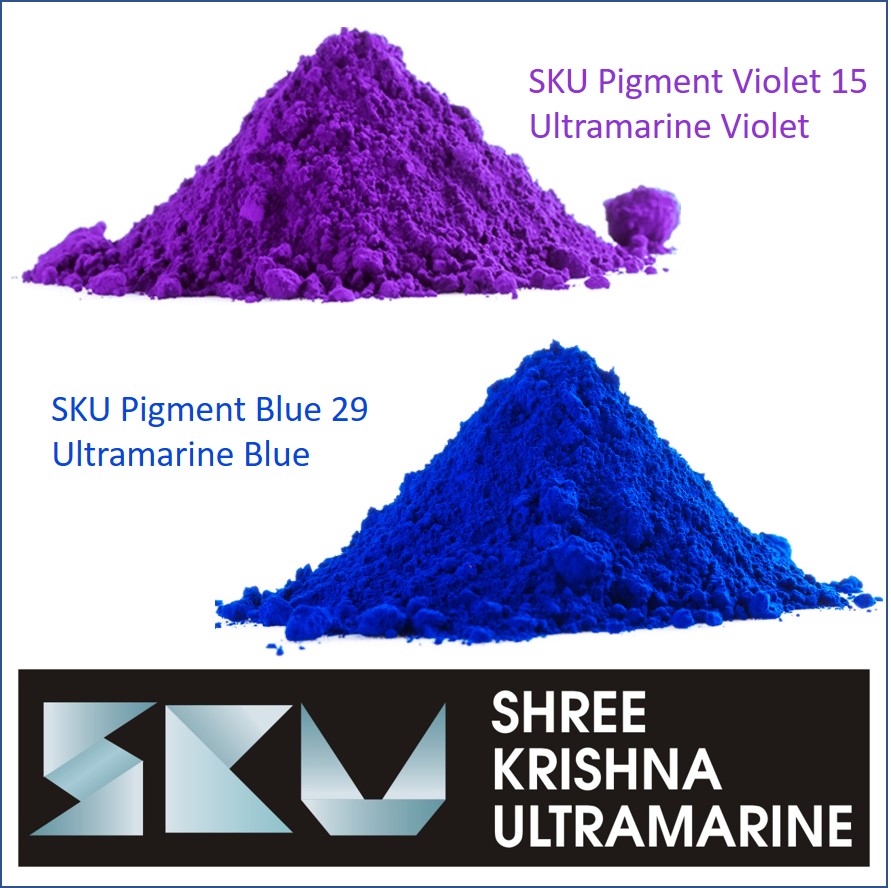Why Ultramarine Pigments Remain the World’s Most Trusted Blue

For centuries, color has influenced art, design, and industry. Among the most celebrated hues, Ultramarine stands out for its depth and richness. Today, companies like SKU Pigments specialize in manufacturing high-quality Ultramarine pigments, including Ultramarine Blue, Ultramarine Violet, Pigment Blue 29, and Pigment Violet. From paints and plastics, Ultramarine has become the standard of modern blue pigments.
The History and Significance of Ultramarine
The name Ultramarine comes from the Latin “ultra mare,” meaning “beyond the sea,” a reference to lapis lazuli originally imported from Afghanistan. For centuries, it was the most expensive pigment, used by Renaissance masters to illuminate manuscripts. It symbolized luxury and spirituality.
Modern chemistry made it possible to synthesize Ultramarine pigments, bringing the once-exclusive shade into everyday use. This breakthrough turned a luxury color into a widely available solution for countless sectors.
Ultramarine Blue Pigments
Ultramarine Blue pigments—the synthetic form of Pigment Blue 29—are globally trusted. Known for their stability, they are safe, eco-friendly, and non-toxic. They are used in:
• Decorative finishes for rich tones.
• Automotive and packaging industries, thanks to heat and weather stability.
• Fine printing, where precision is vital.
• Personal care, given their non-toxic nature.
This balance of durability and eco-friendliness keeps Ultramarine Blue among the most demanded pigments.
Ultramarine Violet and Pigment Violet
Ultramarine Violet offers delicate hues that appeal in decorative paints. Pigment Violet derived from Ultramarine is eco-safe, making it ideal for children’s toys.
Its muted shade enhances luxury packaging, while ensuring longevity without chemical breakdown.
How Pigment Blue 29 Powers Industries
Pigment Blue—particularly Ultramarine Blue pigments—remains a trusted industrial choice. It offers weather resistance for:
• Vehicle coatings with lasting vibrancy.
• Branding, ensuring long-term appeal.
• Construction materials, adding beauty and durability.
This cross-sector utility ensures Pigment Blue’s future relevance.
Advantages of Ultramarine Pigments
• Non-Toxic & Safe: Suitable for sensitive products.
• Heat & Light Resistant: Reliable even in high-heat industries.
• Eco-Friendly: Reduced environmental impact.
• Cost-Effective: Affordable vs. natural pigments.
• Versatile: From fashion to infrastructure.
Applications Across Sectors
1. Paints & Coatings: Decorative finishes.
2. Plastics & Rubber: Stable in polymers.
3. Cosmetics: Luxury formulations.
4. Construction: Plaster and decorative finishes.
5. Printing & Inks: Vivid packaging inks.
The SKU Pigments Advantage
SKU Pigments is a trusted manufacturer, offering eco-conscious solutions in Ultramarine pigments. Their product portfolio includes:
• Ultramarine Blue pigments for mass production.
• Ultramarine Violet and Pigment Violet for refined finishes.
• Custom shades for tailored applications.
Their reputation is built on customer satisfaction and sustainable methods.
Ultramarine: From Heritage to High-Tech
From a costly luxury to an eco-friendly modern solution, Ultramarine has evolved with industries. Whether it’s the classic brilliance of Ultramarine Blue, the sophistication of Ultramarine Violet, or the dependability of Ultramarine Blue Pigment Blue 29, Ultramarine pigments remain unrivaled.
With SKU Pigments as a global supplier, industries gain beauty, safety, and performance. As demand for sustainable pigments rises, Ultramarine will stay ahead in global markets.
Frequently Asked Questions
1. What is Ultramarine?
A blue/violet pigment with historic roots and modern industrial use.
2. What is Pigment Blue 29?
The synthetic form of Ultramarine Blue.
3. Where is Ultramarine Violet used?
In fine arts and specialty industries.
4. Are Ultramarine pigments safe?
Yes, non-toxic and eco-friendly.
5. Why choose SKU Pigments?
Because of quality, eco-focus, and range.